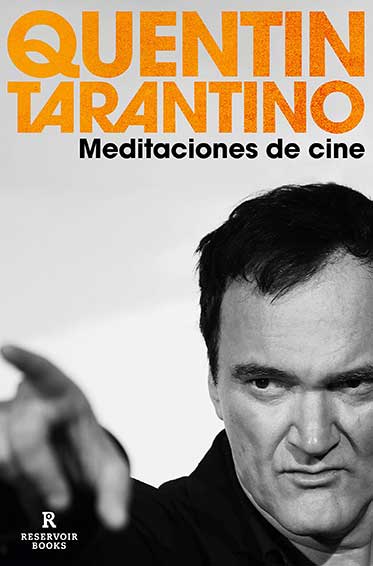This is Quentin Tarantino’s second book, and his first nonfiction. The previous one was the novelization of his film “Once upon a time…in Hollywood”, And those of us who have read it have already verified that Tarantino, who we can undoubtedly qualify as the most important American filmmaker of his generation, in stiff competition with David Fincher and Paul Thomas Anderson, is very far from being the same consummate stylist as a prose writer. when unwrapping with the camera. However, the obvious flaws of crude, amateurish writing were mitigated by his wonderful ear for dialogue and, above all, a seemingly endless ability to devise interesting and distinctive scenes.
Something similar happens in “Film Meditations”; If what you are looking for is a great book on film criticism, there are much better options in any bookstore, such as, for example, in Spain, the publications by Adrián Sánchez or Carlos Aguilar. But, instead, it offers you other things: a seductively autobiographical tone, a practical erudition gained from watching thousands of films in every subgenre imaginable, and an endless repertoire of philias and phobias, often unfair, but also quite funny. We may not agree with his disparaging remarks about Robert Altman or his tacit assertion of Steve McQueen’s superiority over his great rival for movie stardom, Paul Newman, but it’s always worth following the course of his thought. He also has the unique possibility of having chatted with those directly responsible for some of the films he most admires: thus his marvelous article on “The escape” (1972) by Sam Peckinpah relies largely on his conversations with Walter Hill, his longtime collaborator and screenwriter (and a master of action cinema, responsible for films like “The Warriors. The masters of the night” o “Streets of Fire”).
The common thread of “Film Meditations” It takes us to the childhood and adolescence of the future director. When he was a kid in a multiracial slum of LA and he lived with his divorced mom. In that sense, the book is an authentic ode to the lack of parental supervision: young Quentin would continually go to the movies with his mother, with his mother’s partners, with friends of his mother, or, often alone. Thus, for example, at the age of eleven he saw, in a double bill, two very great films, but that no child psychologist, that’s for sure, would recommend to a child at puberty.: “Wild Bunch” (1969) y “Deliverance” (1972). Throughout these pages, Quentin evokes the cinema he saw at that time, which, for the most part, is New Hollywood cinema, which forever forged his perspective on the seventh art (on the contrary, spectacle cinema, moralist and family of the eighties deserves all your contempt).
the last chapter of “Film Meditations” It’s the best in the book, and it talks about an African-American man, Floyd, who he met at the age of sixteen, who in a way became his mentor, from whom he learned a lot about cinema and life, and who also gave him a An idea that, over the years, would become one of Quentin Tarantino’s great films. It is guessed in their relationship a story so good that it would deserve that Tarantino himself also take it to the movies.
